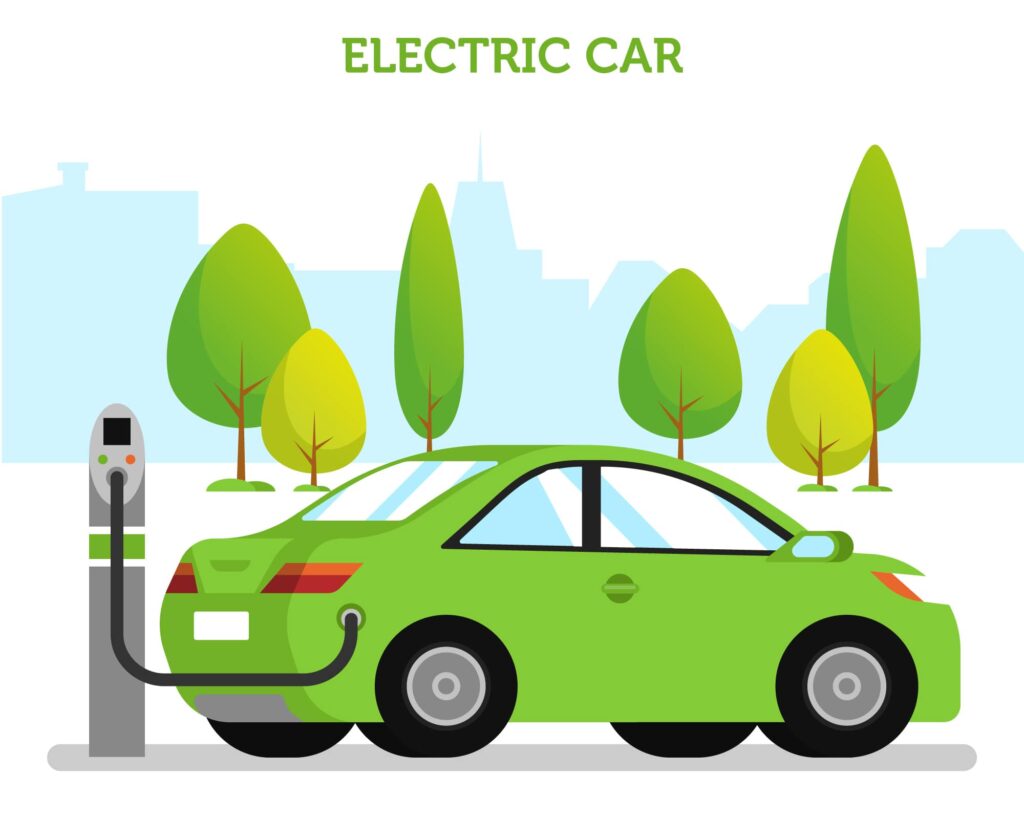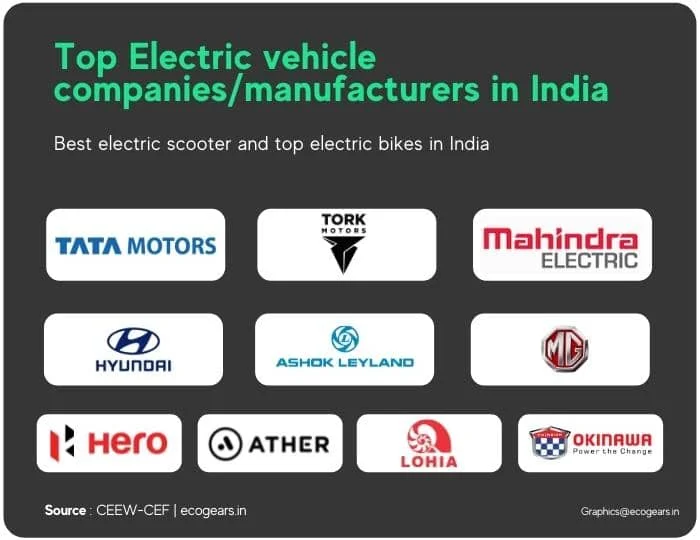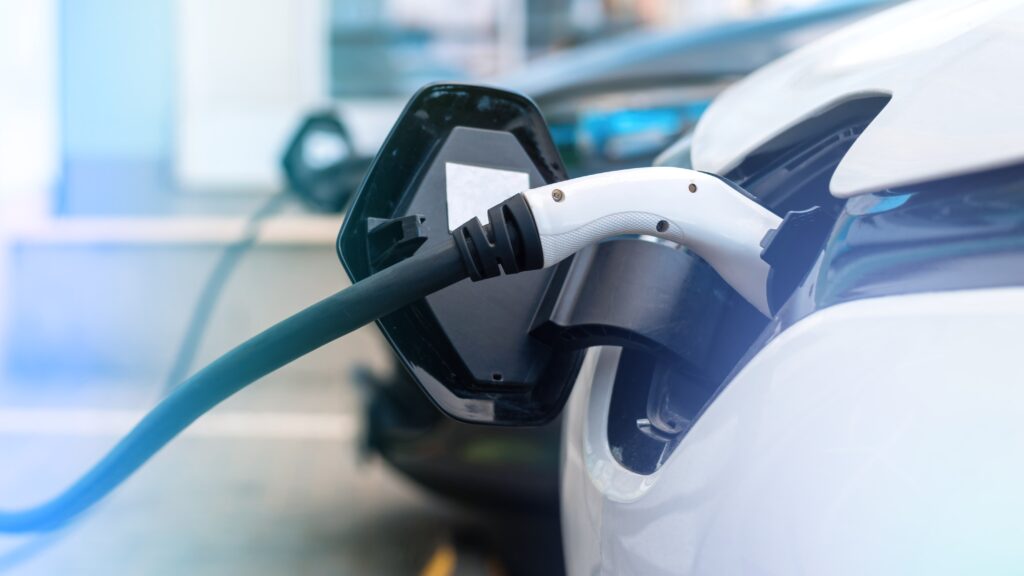1. Introduction
As the world transitions towards a more sustainable future, electric vehicles (EVs) have emerged as a promising alternative to traditional internal combustion engine vehicles. In India, the shift towards cleaner and greener transportation is gaining momentum. This article explores the electric vehicle landscape in India, focusing on the leading companies contributing to this transformation.

2. The Rise of Electric Vehicles in India
– Government Initiatives and Policies
The Indian government has been proactive in promoting EV adoption through various incentives and initiatives. Policies such as the Faster Adoption and Manufacturing of Electric Vehicles (FAME) scheme have played a pivotal role in encouraging manufacturers and consumers alike.
– Advancements in EV Technology
Electric vehicle technology has witnessed significant advancements over the years. Improved battery technology, enhanced charging infrastructure, and increased range have addressed many initial concerns surrounding EVs.
– Increasing Environmental Concerns
With a growing awareness of environmental issues, consumers are seeking eco-friendly transportation options. EVs offer a clean and green solution to combat air pollution and reduce carbon emissions.
You may like also
3. Leading Electric Vehicle Companies
India’s EV market is bustling with activity, with several companies vying for dominance. Let’s take a look at some of the leading players:
– Tata Motors
Tata Motors is a major player in the Indian automobile industry and has made significant strides in the electric vehicle segment. Their electric cars have gained popularity for their performance and affordability.
– Mahindra Electric
Mahindra Electric is known for its focus on electric mobility solutions. They offer a range of electric vehicles, including electric cars and electric three-wheelers, catering to diverse consumer needs.
– Hero Electric
Hero Electric is a pioneer in the electric two-wheeler segment in India. They offer a wide range of electric scooters that have gained traction among urban commuters.
– Ather Energy
Ather Energy has gained recognition for its smart electric scooters. With innovative features and cutting-edge technology, Ather Energy is contributing to the EV revolution in India.
– Revolt Motors
Revolt Motors is a disruptor in the electric two-wheeler market. Their stylish electric motorcycles and unique battery-swapping technology have garnered attention from consumers.
– Okinawa Autotech
Okinawa Autotech specializes in electric scooters and aims to provide sustainable transportation solutions. Their vehicles are known for their reliability and eco-friendliness.

Electric Vehicle Companies in India LIst:
- Tata Motors
- Mahindra Electric
- Ashok Leyland
- Hero Electric
- Ather Energy
- Revolt Motors
- Kia Motors
- Okinawa Autotech
- Ola Electric
- Okaya
- Bajaj Auto (Urbanite Division)
- TVS Motor Company (iQube)
- Ampere Electric Vehicles
- Jitendra New EV Tech (Jitendra EV Tech)
- Emflux Motors
- Ultraviolette Automotive
- Lohia Auto Industries
- EeVe India
- Strom Motors
- Joy E-Bike
- Kabira Mobility
- Yulu Bikes
- Pure EV
- Omega Seiki Mobility
- Gemopai Electric
- Tunwal E-Vehicle
- Avan Motors
- Menza Motors
- Earth Energy EV
- Nexzu Mobility
- Komaki Electric Vehicle
- Techo Electra Motors
- Evolet India
- Saietta Group (formerly Agni Motors)
These companies are actively contributing to the growth of the electric vehicle market in India, offering a diverse range of electric two-wheelers, electric three-wheelers, and electric cars to cater to various consumer needs. As the EV industry continues to evolve, more companies are likely to enter the market, driving innovation and sustainability in the Indian transportation sector.
4. Challenges and Opportunities
While the electric vehicle industry in India is promising, it also faces certain challenges and opportunities:
– Charging Infrastructure
Establishing a robust charging infrastructure is essential to alleviate range anxiety and promote widespread EV adoption.
– Range Anxiety
Range anxiety remains a concern among potential EV buyers, necessitating further improvements in battery technology and charging networks.
– Cost of Electric Vehicles
Though the long-term benefits are substantial, the initial cost of electric vehicles remains relatively higher than traditional vehicles. Addressing affordability is crucial for wider acceptance.
– Recycling and Disposal of Batteries
Proper recycling and disposal mechanisms are vital to manage the end-of-life batteries, ensuring minimal environmental impact.
– Market Potential
Despite the challenges, the Indian electric vehicle market presents vast opportunities for companies to innovate and meet the evolving consumer demands.
5. Electric Vehicles and Sustainability
– Reducing Carbon Footprint
Electric vehicles significantly contribute to reducing carbon emissions and combating climate change, making them a crucial component of sustainable transportation.
– Impact on Air Quality
EVs help improve air quality by eliminating tailpipe emissions, which is especially critical in densely populated cities facing air pollution issues.
– Potential for Renewable Energy Integration
The adoption of electric vehicles also opens up possibilities for integrating renewable energy sources into the power grid, making transportation even more sustainable.
6. Future Outlook
The future of electric vehicles in India looks promising, with several exciting developments on the horizon:
– Projected Growth of EV Market in India
Experts predict a substantial growth trajectory for the EV market in India, driven by technology advancements and supportive government policies.
– Innovations and Trends
Innovative solutions such as battery-swapping stations, connected electric vehicles, and improved energy storage will shape the future of EVs in India.
– Collaborations and Partnerships
Collaborations between EV manufacturers, technology companies, and infrastructure providers will accelerate the transition towards sustainable transportation.

7. Conclusion
The electric vehicle revolution is well underway in India, with the nation embracing cleaner and greener transportation solutions. Leading companies like Tata Motors, Mahindra Electric, Hero Electric, Ather Energy, Revolt Motors, and Okinawa Autotech are at the forefront of driving this transformative change. As the EV ecosystem continues to evolve and overcome challenges, India is set to witness a future where sustainable mobility becomes the new norm.
FAQs
- Are electric vehicles costlier than traditional vehicles?While the upfront cost of electric vehicles may be higher, they offer significant savings in the long run due to lower operational and maintenance expenses.
- How long does it take to charge an electric vehicle?The charging time varies depending on the vehicle and the charging infrastructure. Fast-charging stations can charge EVs to a reasonable range in approximately 30 minutes.
- Can electric vehicles run on Indian roads during monsoons?Yes, electric vehicles are designed to perform well in various weather conditions, including monsoons, without compromising safety or performance.
- What are the maintenance costs for electric vehicles?Electric vehicles have fewer moving parts compared to internal combustion engine vehicles, resulting in lower maintenance costs.
- **Are there any incentives for buying electric vehicles in